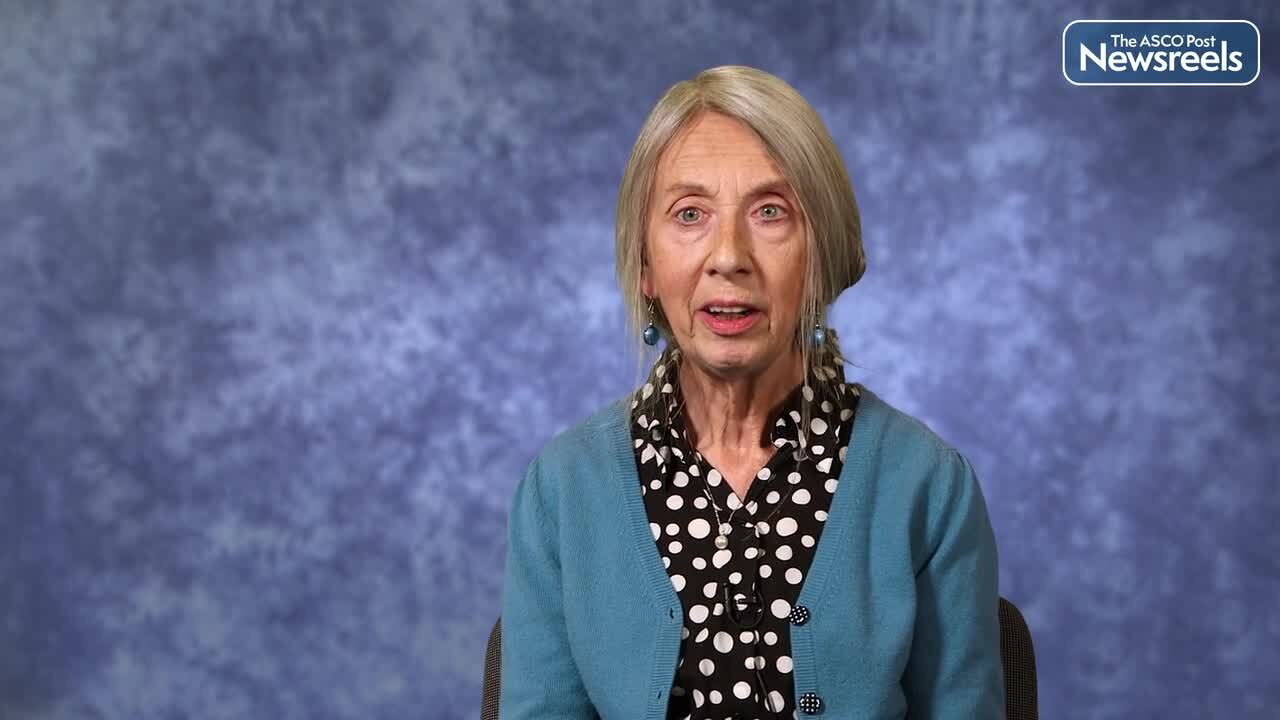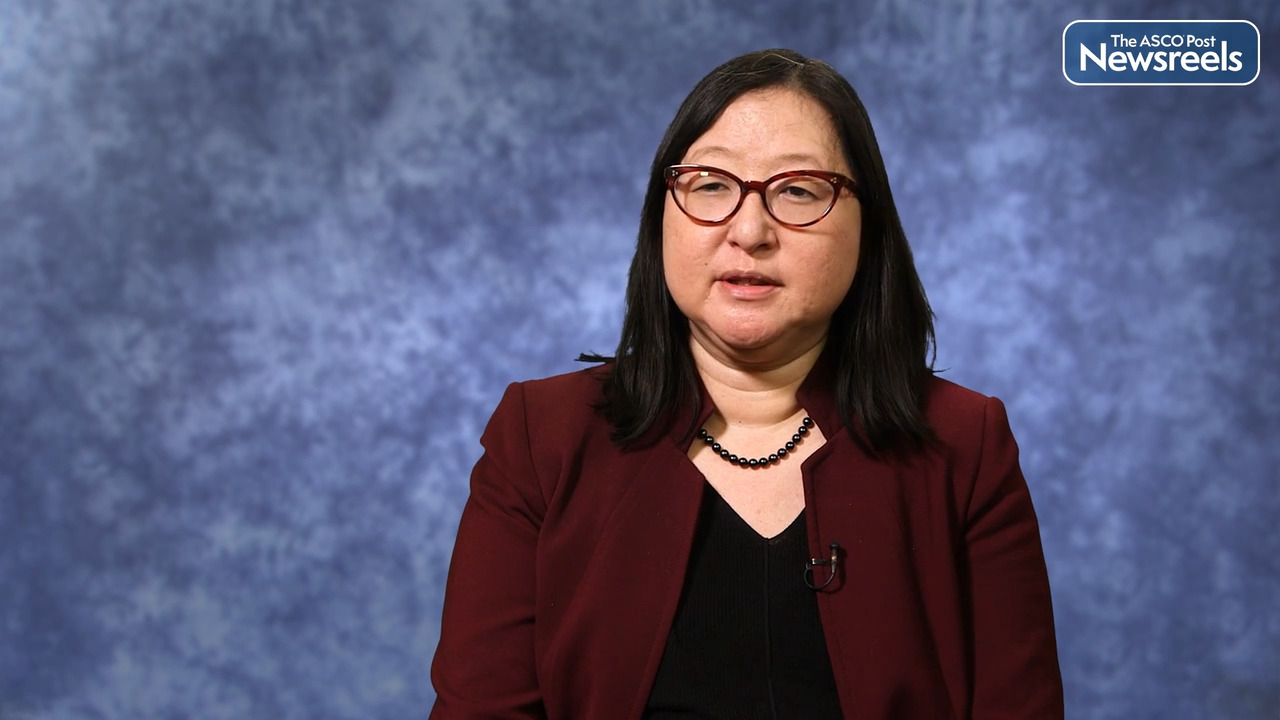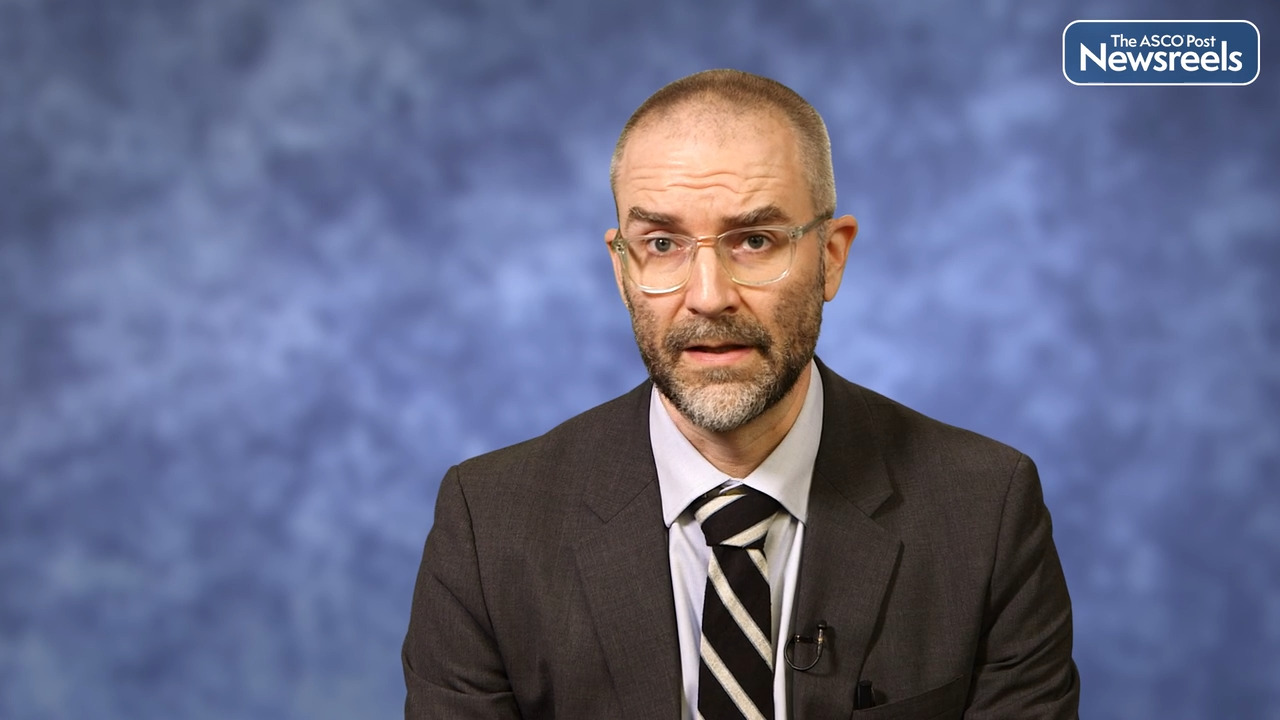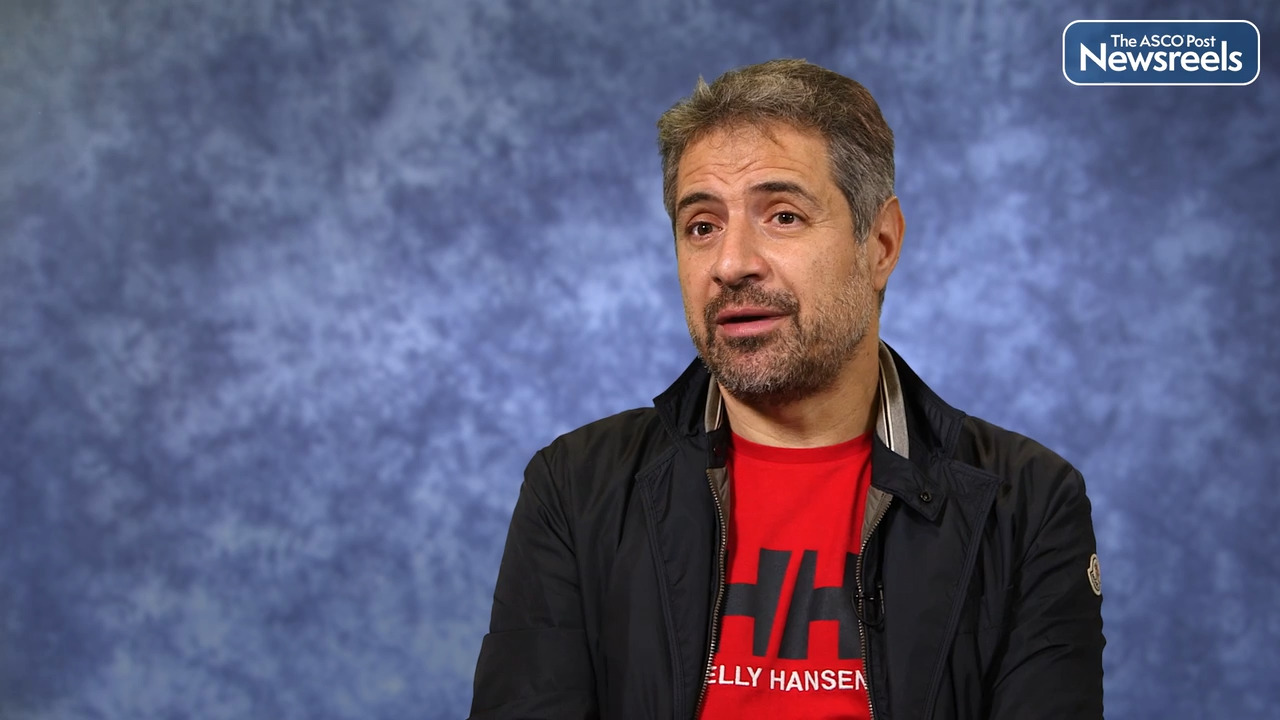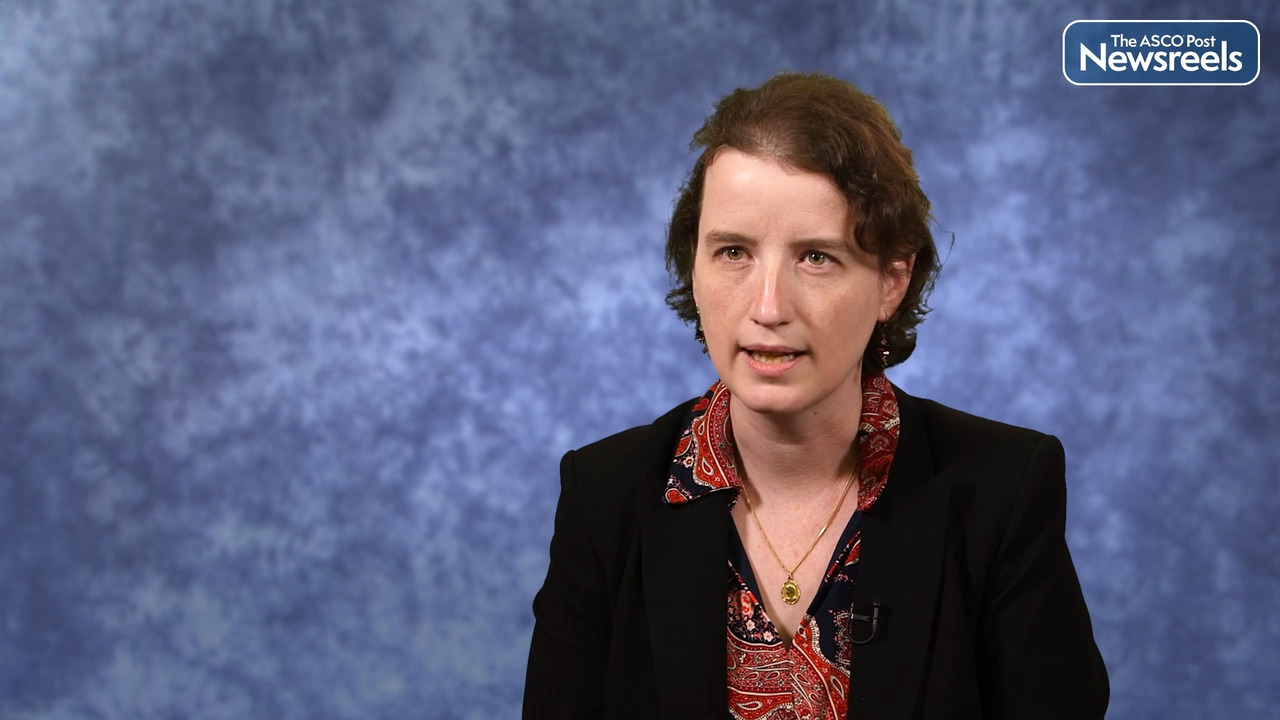Eva Hoster, PhD, on Mantle Cell Lymphoma: Predictive Value of Minimal Residual Disease on Efficacy of Rituximab Maintenance
2022 ASH Annual Meeting and Exposition
Eva Hoster, PhD, of Munich University, discusses results from the European MCL Elderly Trial, which confirmed the strong efficacy of rituximab maintenance in minimal residual disease (MRD)-negative patients with mantle cell lymphoma (MCL) after induction. Omitting maintenance based on MRD-negativity is thus discouraged. Considering the short time to progression, more effective treatment strategies should be explored in MRD-positive patients to improve long-term prognosis (Abstract 544).
Transcript
Disclaimer: This video transcript has not been proofread or edited and may contain errors.
Rituximab maintenance has become standard of care in the first line treatment of mantle cell lymphoma. The European MCL Elderly Trial has established rituximab maintenance after R-CHOP in older patients with mantle cell lymphoma. We assessed and analyzed MRD as part of the MCL Elderly Trial to investigate whether the MRD status at end of induction predicts the efficacy of rituximab maintenance and to find trigger points for MRD based treatment guidance.
The European MCL Elderly Trial recruited patients with previously untreated and advanced stage mantle cell lymphoma older than 60 years and not suitable for autologous stem cell transplantation. Patients were first randomized between six cycles of R-FC and eight cycles of R-CHOP and responding patients were subsequently randomized between rituximab and interferon maintenance until progression. Minimal residual disease or MRD was assessed by real-time quantitative PCR according to standardized guidelines reaching a target sensitivity of 10 to the -5 and MRD time points were at mid-induction, end of induction and the two monthly intervals during maintenance and follow up. MRD assessment was possible and 80% of patients screened for a molecular marker and tumor dissemination enhanced the identification of a molecular marker. Induction with R-FC resulted in a deeper and more rapid MRD clearance compared with R-CHOP. And of note, the differences observed in MRD response were much larger than those seen for clinical remission.
The efficacy of rituximab maintenance was clearly confirmed in patients MRD negative at end of induction and this was especially seen in patients pre-treated with R-CHOP. In contrast, in MRD positive patients at end of induction, the efficacy of rituximab maintenance seemed potentially reduced. In the two years after end of induction rituximab maintenance was associated with more frequent, constant MRD negativity and conversions to MRD negativity and less frequent conversions to MRD positivity. MRD positivity after end of induction and start of maintenance was associated with relatively short response duration and medium times from MRD positivity to clinical relapse and were rather short with around one to one and a half years.
In conclusion, our results confirm the strong efficacy of rituximab maintenance in MRD negative patients which means that omitting rituximab maintenance in MRD negative patients is clearly discouraged by our results. MRD positivity after end of induction inside of maintenance seems to be an important trigger point for treatment intensification or novel treatment approaches. And these MRD guided treatment strategies should be studied in future clinical trials.
The ASCO Post Staff
Irene Roberts, MD, of Oxford’s Weatherall Institute of Molecular Medicine, discusses children with Down syndrome, who have a more than 100-fold increased risk of developing acute myeloid leukemia before their fourth birthday compared to children without Down syndrome. Their risk of acute lymphoblastic leukemia is also increased by around 30-fold. Dr. Roberts details current knowledge about the biologic and molecular basis of this relationship between leukemia and Down syndrome, the role of trisomy 21 in leukemogenesis, and the clinical implications of these findings.
The ASCO Post Staff
Eunice S. Wang, MD, of Roswell Park Comprehensive Cancer Center, discusses the outcomes of patients newly diagnosed with acute myeloid leukemia (AML) who were treated with cytarabine plus daunorubicin plus gemtuzumab ozogamicin (GO). These patients experienced higher rates of measurable residual disease–negative complete remission and complete remission with incomplete count recovery, compared to those treated with cytarabine plus idarubicin daunorubicin alone. Although adding GO was not associated with improved overall survival, longer follow-up is warranted to determine an absolute survival advantage of this regimen (Abstract 58).
The ASCO Post Staff
Joseph Schroers-Martin, MD, of Stanford University, discusses immunogenomic features reflecting divergent biology in posttransplant lymphoproliferative disorders (PTLD). These include evidence of mismatch repair defects in Epstein-Barr virus–positive PTLD, tumor microenvironment depletion, and MYC pathway enrichment in certain patients (Abstract 72).
The ASCO Post Staff
Elias Jabbour, MD, of The University of Texas MD Anderson Cancer Center, discusses an analysis confirming that olverembatinib is a potentially viable treatment option for patients with chronic myeloid leukemia (CML) and Philadelphia chromosome–positive acute lymphoblastic leukemia (ALL), including those with CML whose disease did not respond to ponatinib or asciminib, or who had a T315I mutation (Abstract 82).
The ASCO Post Staff
Eileen M. Boyle, MD, PhD, of the Perlmutter Cancer Center, NYU Langone Health, discusses Fc-mediated antibody effector function, inflammation resolution, and oligoclonality and their role in predicting sustained measurable residual disease negativity in patients with newly diagnosed multiple myeloma who were treated with immunotherapy regimens. For the first time, an analysis of T-cell receptors shows that oligoclonal profiles seen on treatment may influence the fitness of the immune response (Abstract 100).
